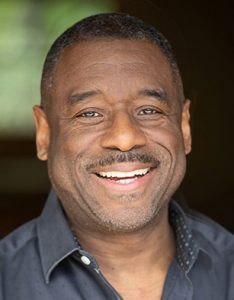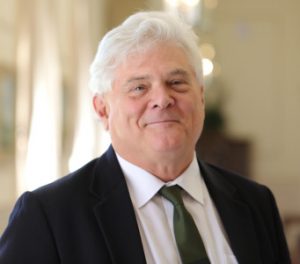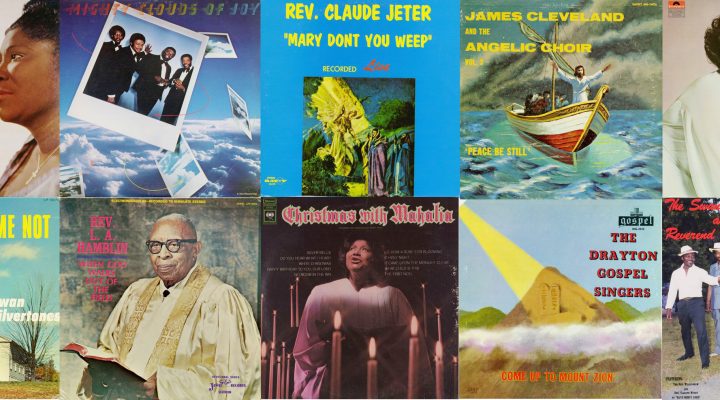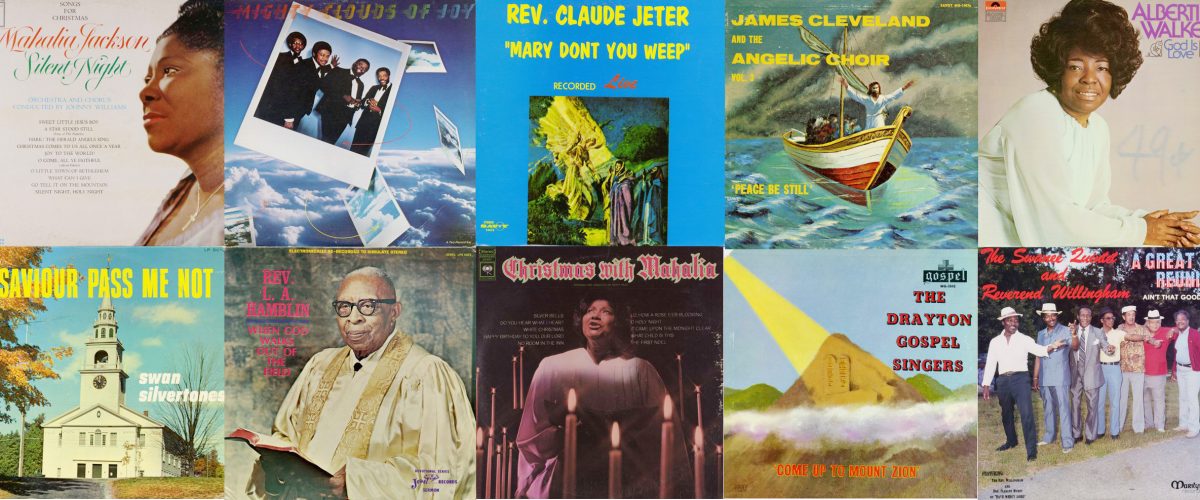Note: This is the first in a five-part series on the Black Gospel Music Preservation Program made possible by generous funding from the Prichard Family Foundation.
Already the largest resource of its type in the world, the Black Gospel Music Preservation Program at Baylor University will continue to build its collection of rare recordings while seeking new ways to share the archive with the public, said Stephen Newby, the program’s new leader.
“In this context here at a university, I think what is really done is allowing African American contributions to sit well in the canon of study in Christian higher education,” he said. “If there was a French chair or German chair studying language, some people wouldn’t even give a second look. But the world is realizing there is a language, there is a sophistication in this music. And from a Christian perspective, there is a story amongst African Americans that fits in God’s big metanarrative that we should pay more attention to.”
“There is a story amongst African Americans that fits in God’s big metanarrative that we should pay more attention to.”
Newby, formerly at Seattle Pacific University, was named the inaugural Lev H. Prichard III Chair in the Study of Black Worship at Baylor in July. The chair resides in Baylor’s School of Music, while the preservation program will continue to be operated and managed within the university’s library system. There will be connections with Baylor’s George W. Truett Theological Seminary as well.

Stephen Newby
“I’m honored to serve in this position,” Newby said. “It’s an ambassador role where I get to work with the school of music, the library and the seminary around the concept of Black worship, Black life, Black stories.”
Launched in 2006 by journalism professor Robert Darden, the program is the world’s largest initiative to identify, acquire, digitize, catalog and make available America’s fast-vanishing legacy of vinyl records from the “golden age” of gospel music — roughly 1945 to 1975. The collection — encompassing 5,000 vinyl records on the shelves and 48,000 digitized tracks — is accessible in person through a state-of-the-art listening center at Baylor’s Moody Memorial Library. Digitized recordings can be heard from anywhere via the library’s online digital collection.
Relationships
Newby said part of his new role will be to build interest by expanding the programming and reach of the archives and exploring partnerships from coast to coast.
“It’s all about relationships because the music is about the people. It’s a matter of developing a broader community,” he said. “And I’m excited to think through the idea of a guild of African American scholars and scholars who are interested in African American music and life and African American sacred music and African American theology and worship style. So, building upon that, perhaps maybe in the future, there will be several conferences.”
Since 2013, the program has partnered with Baylor’s annual Pruit Memorial Symposium, which “brings the perspective of Christian intellectual tradition on contemporary issues of common concern,” according to its promotional material. The March 2023 symposium focused on the life and legacy of gospel composer and artist Andraé Crouch. Newby — a composer of classical, gospel, jazz and chamber music and a presenter at the symposium — sees room for more of this type of study.
“As a composer, I think it is important to think about gospel music, of course being community music, but then there are composers within the canon we need to pay attention to,” he said, “just like we pay attention to what’s come out of Russia — Prokofiev and Shostakovich — and we look at their lives and try to study and investigate and explore the method in the madness.”
Passing the baton
Newby will continue to work closely with Darden, who retired from Baylor in May as emeritus professor. The two first met around 2009 when Darden went to Seattle Pacific to participate in a gospel festival. A few years later, Newby was invited to Baylor to present a paper at the Pruit Memorial Symposium.
“We’ve been friends ever since,” Newby said. “We have a special bond because of this music and because of our passion to let the world know about this music, so that people will hear Gospel music — and the gospel in the music.”
Newby said he and Darden share a dream of getting a bus and taking selections from the archives on a tour of different regions of the country. At each stop, they’d let young people download the music and become familiar with its history.
“We want to close the generation gap, and that happens when we come out of our silos.”
“They’ll be listening to this, and we’ll be saying, ‘Hey, you know, your grandmother and your great grandmother, this was their music. This was their gospel groove.’ We want to close the generation gap, and that happens when we come out of our silos,” Newby said.
Darden said he will be pleased to continue working with Newby and the program.

Robert Darden
“Whatever they want me to do. I mean, I’ve never gotten paid before,” he laughed.
With Newby taking the lead on the program, Darden plans to spend more time on related projects, such as a book he and Newby are co-authoring on Andraé Crouch. Titled Soon and Very Soon: The Transformative Music and Ministry of Andraé Crouch, The Light Years, the book will be published by Oxford University Press in 2024.
Darden also has assisted with film projects that make use of the archives, including two documentaries by Henry Louis Gates Jr., a nationally known historian familiar to audiences of PBS’s Finding Your Roots. Gates tapped Darden and the archives for his 2021 documentary, The Black Church: This is Our Story, This is Our Song. He returned to Waco more recently while researching Gospel, which will air on PBS in February 2024 in four installments.
The Black Gospel Music Preservation Program also partners with the Smithsonian Institution to provide gospel music for the National Museum of African American History and Culture in Washington, D.C.
More than music
While the Baylor program continues to build its archive of Black gospel music, it’s also growing a considerable archive of recorded Black preaching through the Black Gospel Preachers Project. The collection has hundreds of hours of preaching digitized from vinyl records, cassettes, videotape and even film, and Newby said the sermons being collected and preserved go hand-in-hand with the music.
“As scholars continue to research and explore, they’re going to make the connection of what Colossians 3 articulates so well in Scripture, ‘Let the word of Christ dwell in you richly,’ then out of these things will flow psalms, hymns and spiritual songs,” he said. “And I think it’s something about that preached word getting in the ears, the head and the heart of a composer, and what is that composer’s response?”
Newby cited Aretha Franklin as an example of this connection.
“To really get into Aretha’s head and heart and in her hands, you have to pay attention to what sermons she was listening to — pay attention to what her daddy was preaching,” he said.
“This type of investigative study and exploration is critical as we journey to look at the continuation of gospel music,” he continued. “Hence, if we’re not paying attention to Hip-Hop and looking at the jive, we’re not going to really understand gospel music that has Hip-Hop in it. So we have to listen to the sermons and the preaching and listen to the spoken word as art that’s coming out of the young people. We’ve gotta pay attention to it.”
Related articles:
Baylor’s Black Gospel Music Preservation Program names new leader
Baylor’s Black Gospel Archive and Listening Center now open to the public
Baylor endows new academic chair in study of Black worship


